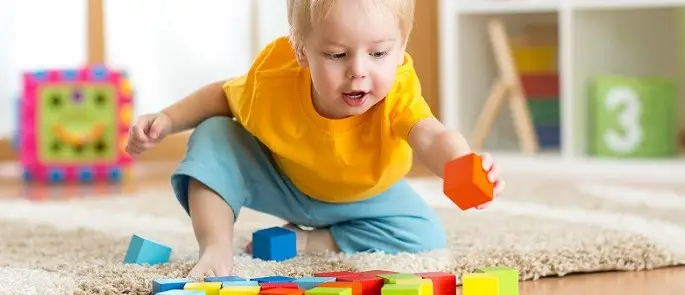How Do Early Experiences Shape a Child’s Development?
The early years of a child’s life are critical for their overall development. During this period, the brain is rapidly growing and forming the foundation for future learning, emotional regulation, and social skills. The experiences children encounter in these formative years—both positive and negative—have profound and lasting effects on their cognitive, emotional, and social development. But how exactly do early experiences shape a child’s development? In this article, we will explore the various ways that early childhood experiences influence growth and development, highlighting the importance of nurturing environments and positive interactions.
1. Brain Development and Critical Periods
In the early years, a child’s brain is incredibly plastic, meaning it is highly responsive to environmental stimuli. This period, often referred to as the critical period or sensitive period, is when the brain is most receptive to learning and development. During these years, connections between neurons are rapidly formed, which support cognitive functions such as language, memory, and problem-solving.
Why Early Brain Development Matters:
- Neural Connections: The first few years are vital for establishing neural pathways that form the basis for a child’s future cognitive abilities. Early experiences help reinforce these connections, making it easier for the child to develop skills in reading, math, and other areas as they grow.
- Plasticity: The brain’s plasticity allows children to absorb and adapt to their environment, which is why positive experiences can have such a powerful impact on shaping their future development.
- Sensitive Periods: During certain critical windows, the brain is more sensitive to specific types of input, such as language, sensory experiences, and social interactions. For example, a child exposed to language-rich environments during early childhood is more likely to develop advanced language skills.
2. The Role of Attachment and Caregiving
One of the most significant influences on a child’s development is the attachment relationship with primary caregivers. Secure attachment, formed when caregivers are responsive and sensitive to a child’s needs, plays a crucial role in fostering emotional well-being and healthy social relationships later in life.
Why Attachment Is Important:
- Emotional Regulation: Secure attachment helps children regulate their emotions, providing them with the ability to manage stress and cope with challenges. When a child feels safe and supported by their caregivers, they learn how to handle difficult emotions like anger, sadness, and frustration.
- Social Skills: Children with secure attachment are more likely to develop strong social skills, as they learn how to engage in relationships based on trust and mutual respect. This foundation forms the basis for healthy friendships and relationships as they grow.
- Self-Esteem and Confidence: Positive early relationships foster a sense of self-worth and confidence. A child who feels valued and understood is more likely to develop healthy self-esteem and believe in their own abilities.
3. The Impact of Early Language and Communication
Language acquisition is one of the most important aspects of early childhood development. Early exposure to language—whether through talking, reading, or listening—greatly influences a child’s cognitive development, academic success, and social skills. Research shows that children who are exposed to rich language experiences at an early age tend to have better vocabulary and communication skills later in life.
Why Early Language Experiences Matter:
- Vocabulary Development: Children who are regularly spoken to, read to, and engaged in conversations tend to develop larger vocabularies and a better understanding of language. This early exposure supports future literacy skills and academic success.
- Cognitive Skills: Early language exposure enhances cognitive abilities, including memory, attention, and problem-solving. When children engage in conversations, they also practice thinking critically, formulating ideas, and making connections between concepts.
- Social Communication: Language is also key to social development. Children who learn to communicate effectively are better equipped to form friendships, resolve conflicts, and navigate social situations. They also develop empathy by learning to understand others’ feelings and perspectives.
4. The Influence of Play on Development
Play is a crucial component of early childhood development, providing opportunities for children to learn, explore, and express themselves. Through play, children engage in problem-solving, creativity, social interactions, and emotional exploration. Whether it’s imaginative play, physical play, or educational games, play contributes significantly to a child’s cognitive, social, and emotional growth.
Why Play Matters:
- Cognitive Development: Play encourages children to think critically and explore new concepts. Puzzles, games, and pretend play help children understand cause and effect, develop problem-solving skills, and enhance their creativity and imagination.
- Social Skills: When children engage in play with others, they learn important social skills such as sharing, taking turns, and collaborating. Play also teaches children how to manage conflicts, follow rules, and cooperate with peers.
- Emotional Development: Through play, children express their feelings and learn how to cope with emotions. For instance, they may act out scenarios of fear, joy, or anger, which helps them process their emotions and build emotional intelligence.
5. The Effects of Stress and Adverse Childhood Experiences (ACEs)
While positive experiences can promote healthy development, negative early experiences—such as chronic stress, neglect, or abuse—can have a detrimental impact on a child’s growth. Adverse Childhood Experiences (ACEs), including physical or emotional abuse, household dysfunction, and other forms of trauma, can disrupt the development of the brain, emotional regulation, and social relationships.
Why Stress and ACEs Are Harmful:
- Brain Development: Chronic stress, especially in early childhood, can hinder the brain’s ability to form healthy neural connections, which affects cognitive development and emotional regulation. This can lead to difficulties with learning, memory, and problem-solving.
- Emotional and Behavioral Issues: Children who experience ACEs are at higher risk of developing emotional and behavioral problems, such as anxiety, depression, aggression, and trouble forming secure relationships.
- Physical Health: The effects of ACEs can also extend to physical health, increasing the risk of chronic illnesses later in life, such as heart disease, diabetes, and substance abuse.
6. The Role of Early Education and Environmental Factors
The environment in which a child is raised, including access to quality early education and a stimulating environment, significantly influences their cognitive and emotional development. Children who are exposed to enriching educational experiences, such as early childhood education programs, are more likely to succeed academically and socially in later years.
Why Education and Environment Matter:
- Cognitive Growth: Early educational experiences provide children with the tools they need to develop foundational skills in reading, math, and problem-solving. Children who participate in structured educational activities are better prepared for school and have stronger academic performance in later years.
- Socialization: Early childhood education programs also foster social development by providing children with opportunities to interact with peers and develop essential social skills.
- Supportive Environment: A nurturing, supportive environment that offers emotional warmth, safe spaces, and opportunities for learning enhances a child’s development. An enriched environment, with exposure to a variety of stimulating activities, helps children thrive cognitively, emotionally, and socially.
7. Conclusion: The Lasting Impact of Early Experiences
In conclusion, early experiences play a crucial role in shaping a child’s development. Positive interactions, nurturing relationships, rich language experiences, and a stimulating environment provide the foundation for cognitive, emotional, and social growth. Conversely, negative experiences such as stress, trauma, or neglect can hinder a child’s development and impact their well-being in the long term.
Parents, caregivers, and educators play an essential role in ensuring that children receive the positive experiences they need to grow and thrive. By providing a supportive, loving environment and encouraging play, communication, and learning, we can help children build the skills and resilience they need for a successful future.

